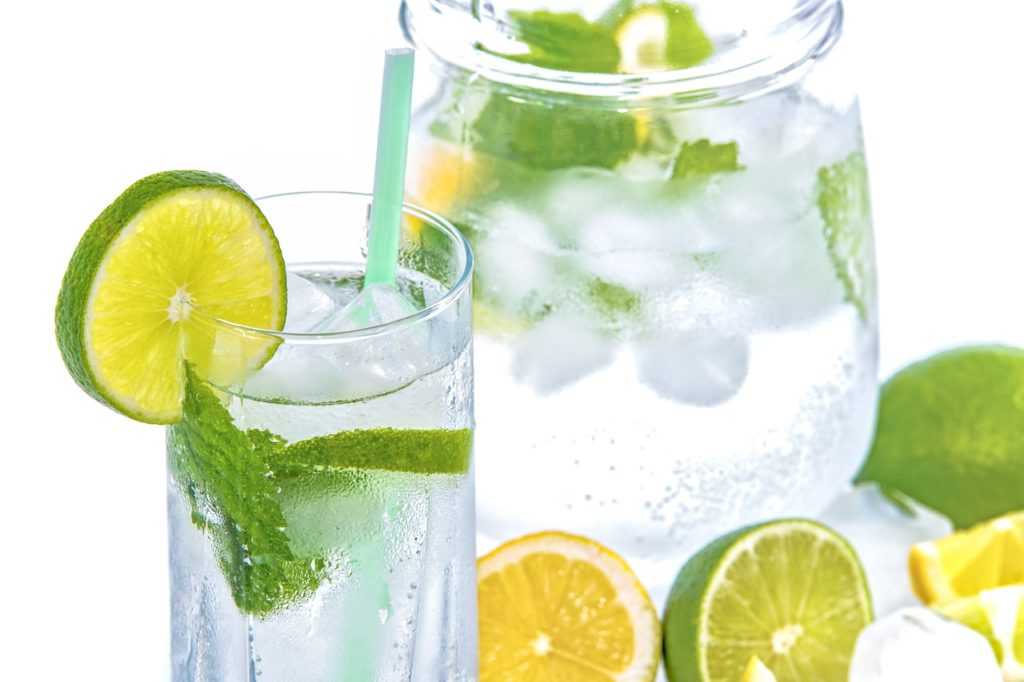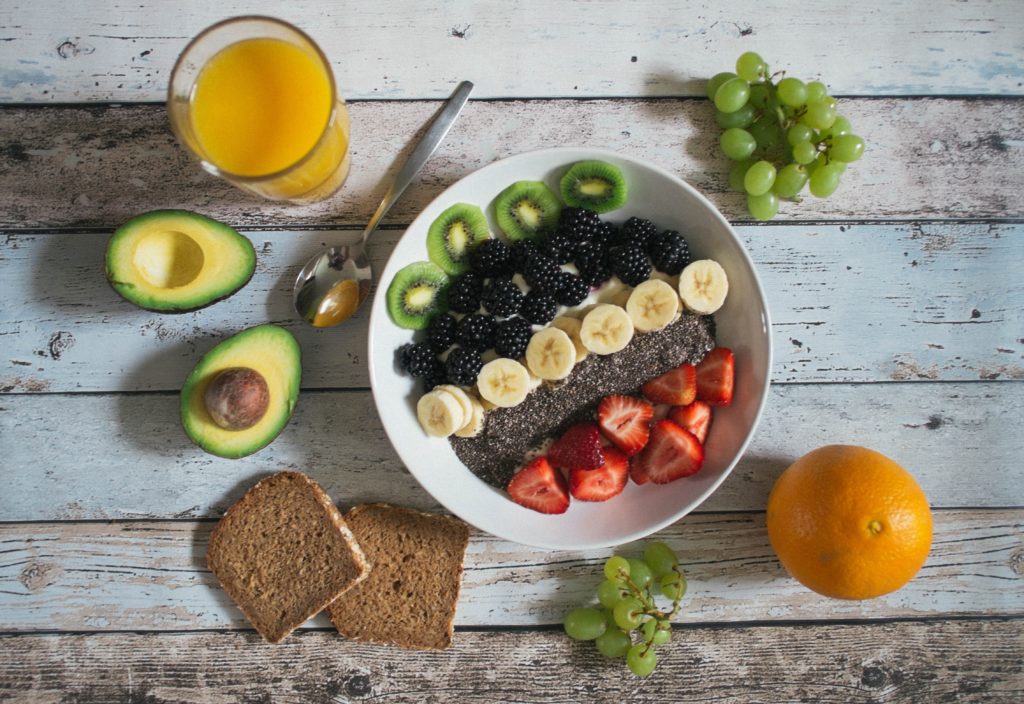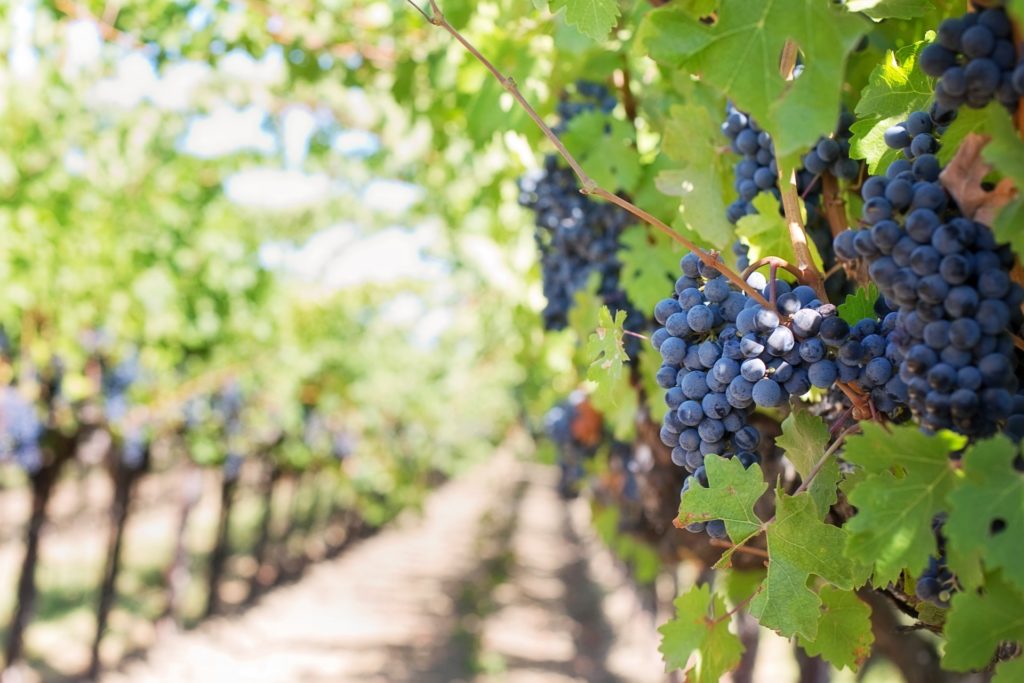It’s easy to make New Year’s resolutions but as we all know it’s much harder to stick to them. Often, we make these grand declarations of how we’re going to fit into those jeans that have been sitting in the wardrobe for five years, or exercise every day, only for us to lose steam by February (or earlier). Instead of making a resolution that will take more time and effort than you can realistically give, why not instead try to adopt one new habit a month.
You see, your health is not a quick-fix. It is a life-long journey. Therefore, changes need to be sustainable and realistic. One habit a month might not seem like much, but what’s that old adage? Slow and steady wins the race.
Below, I’ve listed 12 new habits and whether you choose to do them all or just a few, you will be making positive changes that will improve your health and wellbeing. Most importantly, these are such small changes, you can confidently adopt them without too much time or effort, meaning you are more likely to succeed in improving your health in 2019.
So, let’s begin the “kick start your health” challenge.
1. JANUARY – Drink more water
Water is an essential nutrient. Without it, humans can survive only days. Inadequate water intake can influence concentration, short-term memory, alertness, and mood. It can also affect digestive function and heart function. It has even been suggested that water plays an important role in weight management, with one study showing a significant association between inadequate hydration and high BMI.1 Other studies also showed that people who increased water consumption, in addition to following a weight loss/maintenance program, experienced an increased reduction in body weight after 3-12 months compared to those just following a weight loss program.2 While the mechanisms aren’t fully understood, it has been suggested that water has the potential to reduce food intake if consumed before a meal, helping you feel fuller.3
Even if weight loss is not your goal, it’s clear that adequate hydration is important for your mind, body and health. If you struggle to drink enough water, try setting some reminders on your phone, or writing reminders for your fridge or your desk at work. If you are not one to sip on water throughout the day, try having a glass before breakfast, mid-morning, before lunch, mid-afternoon, before dinner and before bed. This, in addition to other fluids you consume during the day can help to ensure adequate hydration.
2. FEBRUARY – Move more
The benefits of exercise on health and wellbeing are well documented. It’s been suggested that one of the primary causes of chronic disease is a lack of regular physical activity.4 It also has important benefits for mental health and wellbeing. Exercise increases the production of endorphins, your ‘feel good’ hormones, which have been shown to reduce depression, stress, and anxiety, and protect against Alzheimer’s disease.5-6
Australia’s ‘Physical Activity And Sedentary Behaviour Guidelines’ for those aged 18-64 years recommends between 2.5 to 5 hours of moderate intensity, or 75 minutes to 2.5 hours of vigorous intensity physical activity a week. In addition, the guidelines recommend muscle strengthening activities on at least 2 days each week.7 The reality is though that any exercise is better than none. So if the most you can fit in is a 30 minute walk you will still experience benefits. If you aren’t currently doing any exercise then get the approval of your doctor first, start low and go slow, and gradually build up to the recommended amount.
3. MARCH – Eat less meat
The longest and largest study to date looking at the connection between survival and consumption of red meat found that every extra daily serving of processed red meat i.e. bacon and sausages, increased the risk of dying prematurely by 20%, and every extra daily serving of unprocessed red meat i.e. steak, increased the risk of dying prematurely by 13%.8 This is likely due to the saturated fat content of red meat (which raises blood cholesterol levels), and the generation of cancer-causing compounds upon cooking red meat at high temperatures.
But, don’t hit the panic button just yet. In reality, given the complexity of studying the effect of food on long-term health, it is extremely difficult to conduct a definitive study of red meat and mortality, so take these results with a grain of salt. That being said, this isn’t the only study that has linked the intake of red and processed meats with increased risk of chronic disease and some cancers. Bowel Cancer Australia suggests there is enough convincing evidence to link the intake of red meat with an increased risk of bowel cancer, indicating that less meat is probably better for health.9
Red meat is an excellent source of vitamins and protein. But, Australians are the sixth largest per capita consumers of beef in the world, indicating we eat far more than we probably need.10 Bowel Cancer Australia recommend limiting consumption to 500 grams cooked red meat a week.9 My tip, fill up on plenty of vegetables, fruits, wholegrains, legumes, nuts and seeds, fish, and eggs, and enjoy red meat in moderation.
4. APRIL – Get more sleep
Sleep is extremely important for your health. It is essential for the proper functioning of your immune system and brain and is associated with a lower risk of several chronic diseases such as cancer and heart disease.11 Sleep even plays a role in controlling appetite. Without enough sleep, ghrelin (an appetite-stimulating hormone) levels are higher, which increases sensations of hunger.12 However, adequate sleep helps promote the hormone leptin, promoting feelings of fullness. 12 One study found that people who were sleep deprived for even just one night, were significantly more hungry and ate larger portion sizes, compared to those who slept for eight hours.13
How many hours should you be aiming for? The National Sleep Foundation recommend adults be getting 7-9 hours of uninterrupted sleep each night.14
5. MAY – Eat your fruits and vegetables
Studies have consistently associated fruit and vegetable intake with a reduced risk of diabetes, heart disease, some cancers and obesity.15 They are high in vitamins, minerals, antioxidants, polyphenols, anti-inflammatory agents and fibre, whilst being low in sugar, salt and fat. This makes them a ‘superfood’ for health.
Australian Dietary Guidelines recommend adults consume 2 serves of fruit and 5-6 serves of vegetables a day, depending on age and gender.16 1 serve of vegetables is equal to ½ cup cooked vegetables or 1 cup salad vegetables, while 1 serve of fruit is equal to a medium fruit such as an apple, or 2 smaller pieces of fruit such as apricots.
Don’t panic if you’re not getting your recommended serves. Make small goals like simply adding a little extra veg to your plate. Try and have vegetables washed and portioned in your fridge for an easily accessible snack, add vegetables to your favourite family recipes and keep fresh fruit readily available on the kitchen bench or table.
Tip: Eat a variety of colours to ensure you get the full range of health benefits.17 Red foods, such as tomatoes contain the antioxidant lycopene which helps protect against heart disease and prostate cancer. Green vegetables contain zeaxanthin and lutein which help protect against age-related eye disease. Orange and yellow vegetables contain carotenoids (alpha- and beta-carotene), important for healthy skin, immune function and eye health. Yellow vegetables also contain beta-cryptoxanthin, a strong antioxidant linked to cancer prevention and a reduced risk of developing inflammatory disorders such as rheumatoid arthritis. Purple and blue foods contain the antioxidant anthocyanin which can protect against cancer, heart disease and stroke. While white vegetables contain sulforaphane which also helps protect against some cancers.
6. JUNE – Make breakfast count
Contrary to what you may have heard, eating breakfast is not necessary for everyone. However, a nutritious breakfast can give you the energy to start your day, and prevent you from over-eating later in the day. So, instead of starting the day with cereals higher in processed sugars, why not start the day with some wholegrains like rolled oats, or protein-rich eggs.
Eating eggs at breakfast can increase feelings of fullness, thereby reducing calorie intake at the next meal.18 Additionally, eggs contain choline, important for brain and liver health, and the yolks contain antioxidants which can help prevent age-related eye issues.19-20 If eggs aren’t your thing, why not try some rolled oats. Rolled oats contain all three layers of the edible grain, the bran, the endosperm, and germ, meaning you get a breakfast packed with fibre, B vitamins, phytonutrients, vitamin E, iron, magnesium, copper, zinc, and protein.21 Oats also contain beta-glucan, a unique fibre which can help to reduce cholesterol and promote feelings of fullness.22-23
7. JULY – Have a handful of nuts every day
Instead of reaching for the chips or biscuits, try grabbing a handful of nuts. Nuts are loaded with healthy fats and are a good source of protein, fibre, B vitamins, vitamin E, magnesium, potassium, calcium, zinc, iron, and phytochemical antioxidants such as resveratrol and flavonoids.24 Studies have shown they can help with weight loss and protect against heart disease.25-26 One study showed that almonds in particular increased weight loss by 62% compared to complex carbohydrates.27
So how many should we be having? 30 grams (a handful) of nuts per day can reduce the risk of developing heart disease by 30-50%, reduce the risk of death from heart disease by around 20%, and reduce the risk of developing type 2 diabetes by 30%, due to the high amounts of healthy monounsaturated and polyunsaturated fats in nut, and the low amounts of saturated fat.24
8. AUGUST – Honour your hunger
Hunger is a biological mechanism. You can’t overcome or ‘beat’ your hunger, no matter how much willpower you have. So instead, honour your hunger and eat when you feel hungry. The more you try to ignore your hunger, the more powerful it comes. Think about the last time you really wanted some of that chocolate sitting in your pantry but you said “no”. But, then you start thinking about it, and keep thinking about it, and your desire to eat the chocolate grows until eventually you ‘give in’ and eat the entire block of chocolate. This is the same way your hunger works. The more you try to ignore your hunger signals, the more powerful it becomes, so when you eventually eat you will likely over-eat to satisfy that physiological and biological need.
9. SEPTEMBER – Eat mindfully
Mindfulness is a term that has been bandied about over the years, but it is one that has an enormous amount of evidence behind it. To eat mindfully means to eat slowly, chew thoroughly, focus on how you feel when you’re eating, and eat without distractions. It encourages you to really pay attention to what you are eating, how fast you are eating it, and why you are eating it. Mindful eating can promote weight loss.28 It’s been suggested that compared to slow eaters, fast eaters had greater appetites with a tendency to overeat at mealtimes, and therefore were more likely to be overweight or obese.29 Eating slowly and chewing properly gives your body and brain more time to release anti-hunger hormones and convey fullness signals.30 So, put your fork down between bites, chew your food properly, and make your meal times a social event – the more talking you do, the slower you will eat.
10. OCTOBER – Ditch the alcohol
Not only is alcohol high in kilojoules which can hinder weight loss attempts and even lead to weight gain, it can actually be harmful to your health. Too much alcohol can have damaging effects on the brain, increasing your risk of having a stroke and developing dementia.31 Drinking 3-4 standard drinks a day increases your risk of developing liver cancer, and even just 1-2 standard drinks a day increases your risk of stomach and bowel cancer.31
The Australian alcohol guidelines recommend that in order to reduce your risk of harm from alcohol, healthy adults should drink no more than two standard drinks on any one day, with two alcohol-free days per week.32 If you are pregnant or breastfeeding then not drinking is the safest option.
However, a 2018 study concluded that the healthiest thing to do is to abstain entirely.33 This study investigated the health effects of alcohol consumption in 195 countries and territories between 1990-2016, using data from 694 studies. It showed that alcohol use was the leading risk factor for global disease burden and causes substantial health loss, with risk of mortality and cancers rising with increasing levels of consumption. Whilst it was found that low levels of drinking could offer some protection against heart disease, these positives were far outweighed by the harmful effects of alcohol. Researchers concluded that in order to minimise health loss, the level of alcohol consumption should be zero. This goes against the advice of previous studies which suggested moderate intake of alcohol may be beneficial to health, indicating that official Australian guidelines may need revising.
11. NOVEMBER – Find a like-minded buddy
Your friends can have an enormous influence on your health and wellbeing. A US study found that if you have a close friend who becomes obese, your chances of becoming obese increase by 171%.34 Likewise, it found if your significant other quits smoking, you have a 67% decreased chance of smoking. Can’t find the motivation to exercise? Meet up with that friend who exercises regularly and it might just rub off on you. Having a workout buddy means you’re less likely to get bored, you’re more likely to stick to your commitment, and more likely to succeed in your goal.
12. DECEMBER – De-stress your life
Stress takes a major toll on your overall health and wellbeing. It can cause anxiety, irritability, headaches, insomnia, and depression. It has also been shown to increase appetite, due to its effects on increasing the hormone cortisol which promotes hunger and food cravings.35-36
There are many strategies that can help to reduce stress levels. Regular exercise has been shown to reduce anxiety by lowering your body’s stress hormone, cortisol, and helps to release endorphins which are natural “feel good” chemicals.37 Why not try yoga? Some studies have indicated that yoga can enhance mood and even be as effective as antidepressant drugs at treating anxiety and depression.38 Research has also shown that meditation and mindfulness can be effective in alleviating stress, reducing anxiety and depression, and improving overall health.39-40
TAKE HOME MESSAGE
Don’t make New Year’s resolutions that you won’t stick to. All 12 of these healthy habits will make enormous improvements to your health, and the evidence for each is overwhelmingly convincing. Simply choose one habit to adopt a month and take it slow. Making some change is better than not making any at all. By the end of 2019 you will be well on your way to a healthier you.
This year, Hawthorn Health & Dietetics will be running our very first free “Get Moving” Challenge. Make sure you are signed up to our newsletter so you don’t miss out on all the details if you want to get involved.
If you need some help setting some goals of your own, get in touch with one of our dietitians.





Hi Ronald,
Blood thinning medications are recommended to some people to prevent blood clots from forming and to keep existing blood clots from getting larger. Medications are necessary because these clots can cause stroke and heart attacks.
There are foods which some believe can help reduce the risk of clotting, but unfortunately there are limited studies looking at their effectiveness in comparison to prescription medication. So if you have been advised by your doctor to take blood thinning medication then it’s important to do so.
Certainly following a ‘heart healthy’ diet can be beneficial – filling up on fruits, vegetables, wholegrains, fish and seafood, eggs, legumes, nuts and seeds – and limiting salt intake, processed and cured meats, and highly refined carbohydrates.
Hi Hawthorn Dietetics,
As an elder person we regularly hear about being on drug thinners due to various disorders.
Could you advise which foods are more naturally available for thinning blood as opposed to thickening blood.
I imagine these foods would be better to advocate for a diet as part of an overall plan to decrease the possibility of drug blood thinners.
Thanks